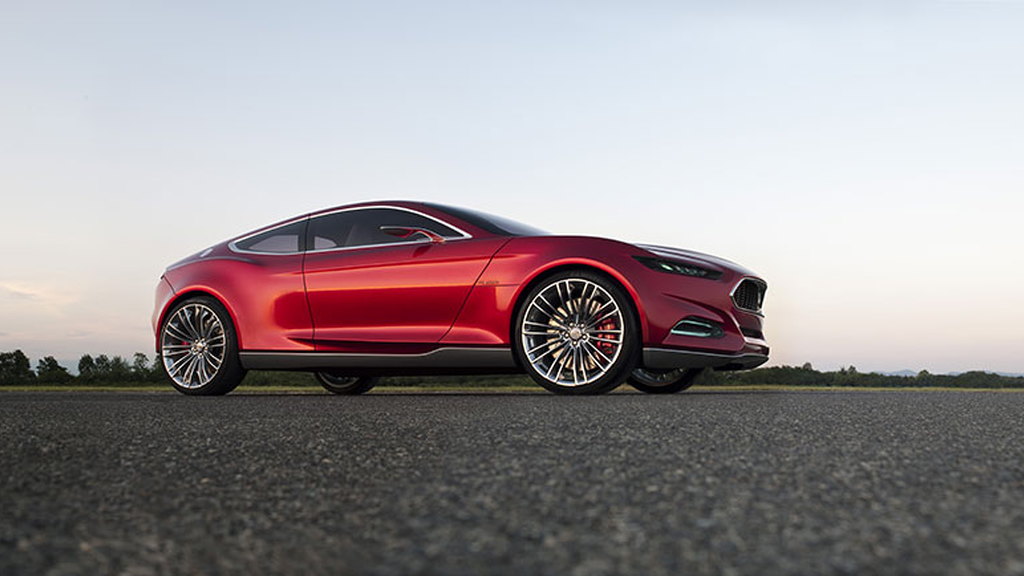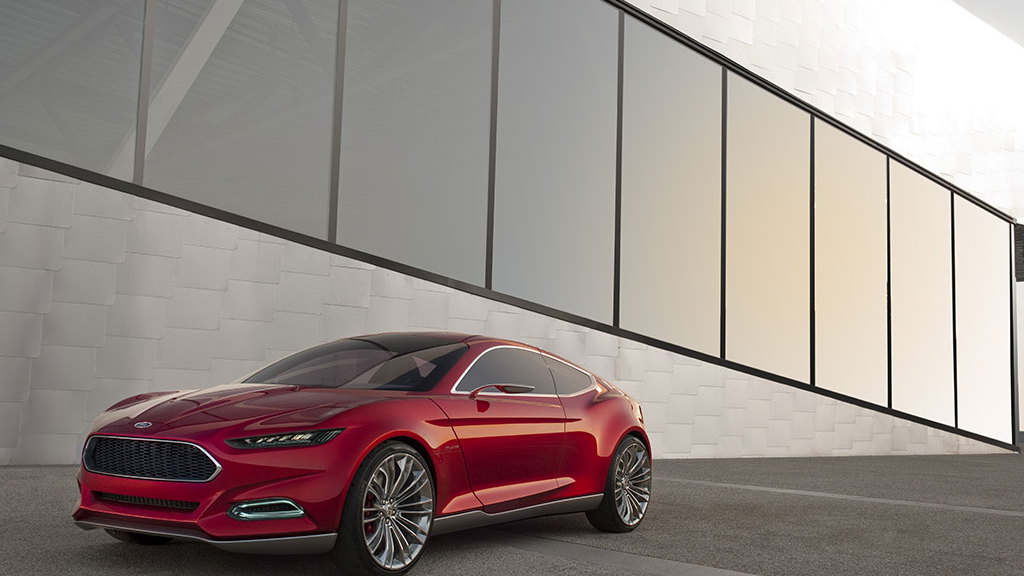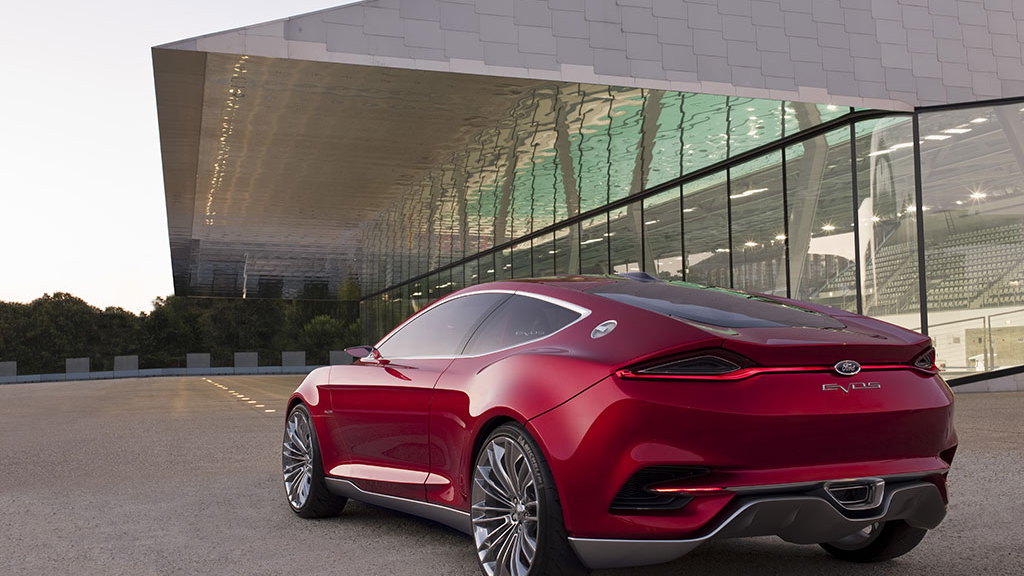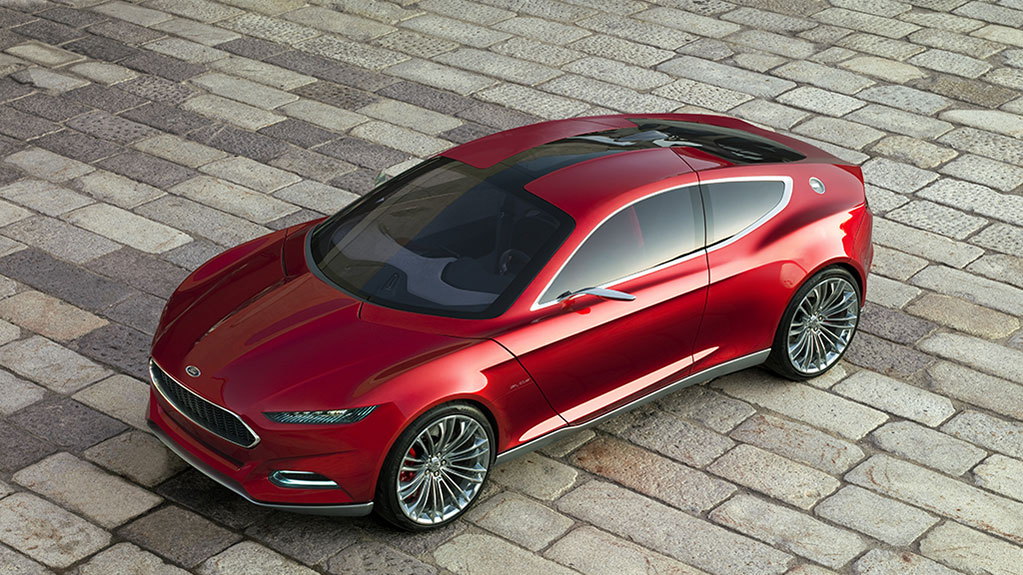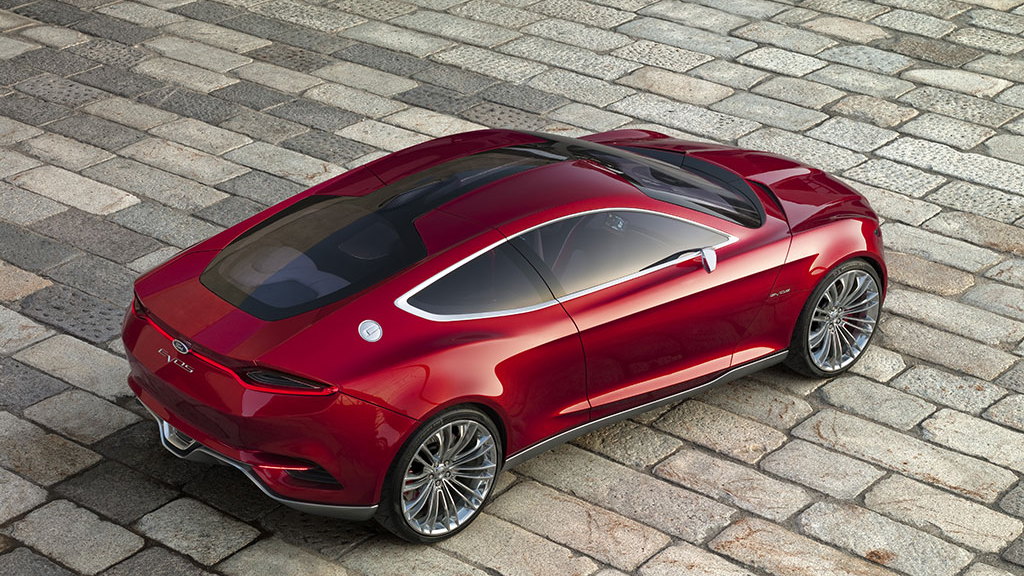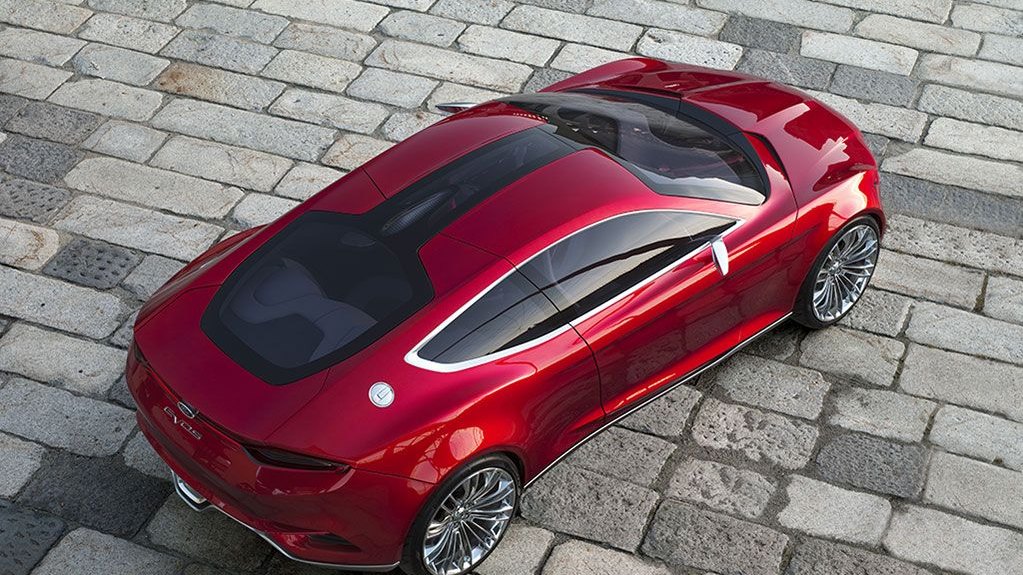Today Ford unveiled the Evos Concept Car that will be at the center of its display at next month's 2011 Frankfurt Auto Show.
The bright-red concept is a sports coupe that the company says shows off an evolution of its global "kinetic design" language. It will also preview research into new ways for a driver to interact with his "personal cloud of information" via cars that are seamlessly connected to the Internet.
The Evos coupe, with distinctive gull-wing doors front and rear, is the length of a compact car but almost as wide as a mid-size vehicle, giving its four occupants a more spacious feel.
Personalizing the car's behavior
Ford says future vehicles that use the technology shown in Evos will know their drivers, automatically configuring the engine, steering, and suspension controls to that specific driver's desired experience.
The company highlights four benefits to customers that are demonstrated in the Evos: a "smart" electrified powertrain, personalization, a seamlessly enhanced driving experience, and monitoring of the driver's well-being.
Plug-in hybrid powertrain
The Evos powertrain is the plug-in hybrid-electric system used in the 2013 Ford C-Max Energi that will launch next year.
Its lithium-ion battery pack will likely provide up to 12 or 15 miles of electric-only driving (Ford has not specified the figure), under the right circumstances. That ability will be important if European city cores limit access to zero-emission vehicles in years to come.
On top of that, access to previous driving patterns for different drivers would allow the car to calculate both routes and driving-dynamics settings that would minimize energy use while still delivering the expected driving experience.
Knowing the vehicle's predicted route, along with real-time traffic and weather conditions, would allow the vehicle to calculate the most energy-efficient routing and performance settings, changing them on the fly as the situation demanded.
Predicting what the driver wants
As for driver personalization, examples might include knowing a driver's schedule, so the car could pre-heat or pre-cool itself to be ready for the driver on departure.
The Evos could seamlessly continue playing whatever audio or news programming a driver may have been listening to at home, and recommend driving routes based on a driver's preference: most entertaining, fastest, most direct, or lowest-traffic.
Enhancing the driving experience would allow the car to "know" what kinds of handling a driver liked, an automated version of the multiple-setting switches that let drivers specify "comfort" / "normal" / "sports" handling or "Eco" / "normal" / "power" modes for performance.
Dialing down distraction
And, finally, the car might work to improve driver well-being by automatically switching the driver's mobile phone to "Do Not Disturb," muting the audio, and reducing the complexity of displays in situations where dynamic driving or greater attention is required due to heavy traffic, challenging roads, or other factors.
While concept cars ilke the Evos are sometimes mere styling exercises, more often than not they foreshadow production models to come.
In the case of the Evos, that could be a sporty GT coupe model to be build on the carmaker's global compact platform. Ford has said it will offer a dozen or more vehicles on that basic architecture, and thus far, only a handful--the Focus hatchback and sedan, the C-Max Hybrid and Energi--have been revealed.
A sporty, high-tech hybrid sports coupe might well open up a new niche for Ford. And even if it doesn't come with the plug-in hybrid powertrain--a nice EcoBoost, anyone?--we still think it looks pretty neat.
[Ford]
+++++++++++
Follow GreenCarReports on Facebook and Twitter.
